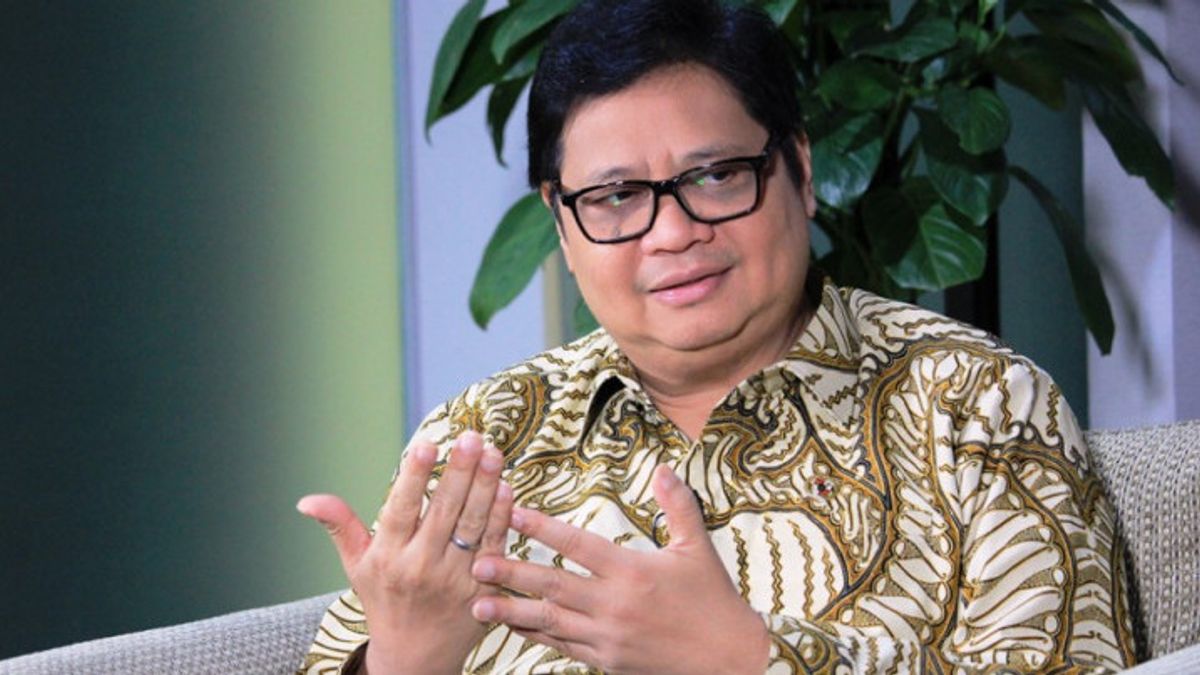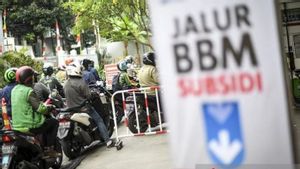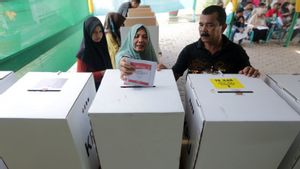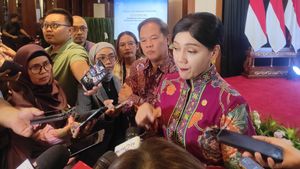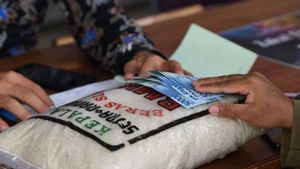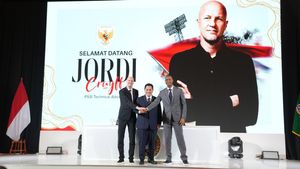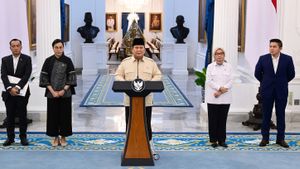JAKARTA - The Coordinating Minister for the Economy Airlangga Hartarto stated that stopping palm oil exports to the European Union was not an option to decide on.
"Stopping exports is not something that is being discussed and we, as a country that also imports exports, of course, that is not an option," Airlangga said during a press conference with Malaysia's Minister of Agriculture and Commodities Dato Sri Fadillah Yusof, at the Mandarin Oriental Hotel, Jakarta, quoted from Antara, Friday 10 February.
On this occasion, Indonesia and Malaysia agreed to visit the European Union with the joint mission of communicating and preventing undesirable consequences for the palm oil sector from the deforestation-free commodity regulations that were inaugurated by the European Union.
The regulation that Airlangga is referring to is the Deforestation Free Products Act (UU) which was passed by the European Union on December 6, 2022. The law will prohibit the entry of products related to deforestation, such as soybeans, beef, coffee, and some palm oil derivatives.
"There are no boycotts (from Indonesia to ban palm oil exports). So I don't think we need to respond to what isn't there," said the Coordinating Minister for the Economy.
On this occasion, Indonesia officially handed over the chairmanship of the Council of Palm Oil Producing Countries (CPOPC) to Malaysia which will become the Chair of CPOPC in 2023.
By handing over the CPOCP, Malaysia's Minister of Agriculture and Commodities Dato Sri Fadillah Yusof ensured that there was a main mission that was prepared in the context of Indonesia and Malaysia's visit to the European Union.
The mission will explain how Indonesia and Malaysia are committed to protecting the natural surroundings in developing the economy through oil palm.
The departure of Indonesia and Malaysia to meet the European Union also brought smallholders to express their voices regarding oil palm and their experiences working in the palm oil industry.
SEE ALSO:
"We set off (explain) not only in scientific, fact, and economic terms, but also in a social context, where we will bring together the small growers to give voice and views to give information so that we can give true information to the Union Europe (about) what has been practiced in Malaysia and Indonesia. (This effort was made) not only for the farming industry, but to fight for the rights of smallholders to get out of the poverty line," he said.
Furthermore, the Minister from Malaysia hopes that Indonesia and Malaysia's commitment to Indonesian Sustainable Palm Oil (ISPO) and Malaysian Sustainable Palm Oil (MSPO) will be accepted by the European Union and the global world.
"This is where our goal is, how can CPOPC be accepted and all the standards that we build (regarding the development of the palm oil industry) will be accepted at the global level," said Dato Sri Fadillah.
The English, Chinese, Japanese, Arabic, and French versions are automatically generated by the AI. So there may still be inaccuracies in translating, please always see Indonesian as our main language. (system supported by DigitalSiber.id)
